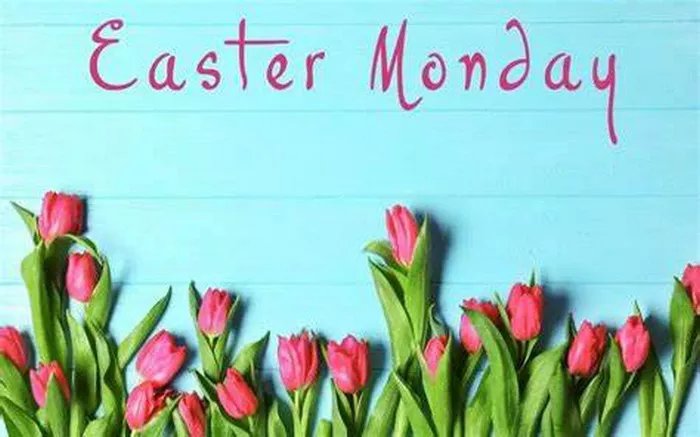In the wake of Easter Sunday, a day celebrated by millions worldwide, comes Easter Monday—a day shrouded in historical significance and cultural tradition. While Easter Sunday marks the pinnacle of the Christian calendar with the resurrection of Jesus Christ, Easter Monday holds its own unique place in the hearts and minds of believers and non-believers alike. Beyond its religious connotations, Easter Monday encompasses a tapestry of customs, rituals, and observances that vary widely across different cultures and regions. In this article, we delve into the multifaceted significance of Easter Monday, exploring its origins, meanings, and contemporary celebrations.
Origins and Historical Significance
To comprehend the significance of Easter Monday, it’s imperative to delve into its origins, which can be traced back to ancient times. The roots of Easter Monday are deeply intertwined with the Christian faith and the events surrounding the crucifixion and resurrection of Jesus Christ.
According to Christian tradition, Easter Sunday commemorates the resurrection of Jesus Christ, which occurred on the third day after his crucifixion. This event holds immense theological significance, symbolizing victory over death and the promise of redemption for believers. However, the days following Easter Sunday also hold profound importance in the Christian liturgical calendar.
Easter Monday, specifically, is often regarded as an extension of the Easter celebrations, forming part of the broader period known as Eastertide or the Easter Season. In the Christian tradition, this season spans 50 days, beginning on Easter Sunday and culminating with the celebration of Pentecost. During this time, believers reflect on the significance of Christ’s resurrection and its implications for their faith and daily lives.
Beyond its religious roots, Easter Monday also has historical significance that predates Christianity. In many cultures, the arrival of spring was celebrated with various rituals and festivals, often associated with themes of renewal, rebirth, and fertility. These ancient customs merged with Christian traditions over time, shaping the way Easter Monday is observed in different parts of the world.
Cultural Observances and Traditions
One of the most striking aspects of Easter Monday is the diversity of customs and traditions associated with it. Across different cultures and regions, people mark this day with a myriad of activities, ranging from religious observances to secular festivities.
In many Christian-majority countries, Easter Monday is a public holiday, allowing people to extend their celebrations and spend time with family and friends. In some traditions, it is customary to attend church services or participate in religious processions and ceremonies, reflecting on the significance of Christ’s resurrection and offering prayers of gratitude.
However, Easter Monday is not solely a religious observance; it also encompasses a wide array of secular customs and traditions. In some parts of the world, particularly in Europe, it is customary to engage in outdoor activities such as picnics, egg rolling, and sports competitions. These traditions often have roots in ancient pagan festivals celebrating the arrival of spring and the renewal of life.
For example, in the United Kingdom, the practice of egg rolling has been a beloved Easter Monday tradition for centuries. Families gather at designated locations, often hillsides or parks, to roll hard-boiled eggs down slopes, competing to see whose egg travels the farthest without breaking. This playful activity is said to symbolize the rolling away of the stone from Jesus’ tomb during the resurrection.
Similarly, in parts of Central and Eastern Europe, particularly in Poland and Hungary, Easter Monday is celebrated with a unique tradition known as “Śmigus-Dyngus” or “Wet Monday.” During this festive occasion, people playfully splash each other with water, a custom believed to symbolize cleansing, purification, and the rejuvenating power of spring.
Contemporary Celebrations and Interpretations
In contemporary times, the observance of Easter Monday continues to evolve, reflecting changing cultural norms and societal values. While religious observances remain central for many believers, secular celebrations have gained prominence, offering opportunities for people of all backgrounds to come together and enjoy shared traditions.
In multicultural societies, Easter Monday serves as a platform for interfaith dialogue and cultural exchange, fostering understanding and respect among diverse communities. It is not uncommon to see individuals of different religious affiliations and cultural backgrounds participating in Easter Monday festivities, enriching the experience with their unique perspectives and customs.
Moreover, the advent of technology and social media has transformed the way Easter Monday is celebrated and shared. In an increasingly interconnected world, people can now connect with others from around the globe, exchanging greetings, sharing photos and videos of their celebrations, and engaging in virtual interactions that transcend geographical boundaries.
At its core, Easter Monday remains a time for reflection, renewal, and rejoicing—a day to pause and contemplate the deeper meanings of faith, tradition, and community. Whether observed through solemn religious ceremonies or lighthearted festivities, it serves as a reminder of the enduring power of hope, love, and resilience in the face of adversity.
Conclusion
In conclusion, Easter Monday stands as a testament to the rich tapestry of human culture, spirituality, and tradition. From its ancient origins rooted in the Christian faith to its contemporary manifestations in diverse societies around the world, it embodies the timeless themes of rebirth, renewal, and solidarity.
As we reflect on the significance of Easter Monday, let us embrace the diversity of customs and traditions that define this auspicious day. Whether through solemn rituals or joyous celebrations, may we find meaning and inspiration in the enduring messages of hope, forgiveness, and redemption that Easter embodies.
In the words of Mahatma Gandhi, “I like your Christ, I do not like your Christians. Your Christians are so unlike your Christ.” May Easter Monday serve as a reminder for Christians and non-Christians alike to strive towards embodying the compassionate and inclusive spirit of Christ in our interactions with one another and in our contributions to a more just and harmonious world.

